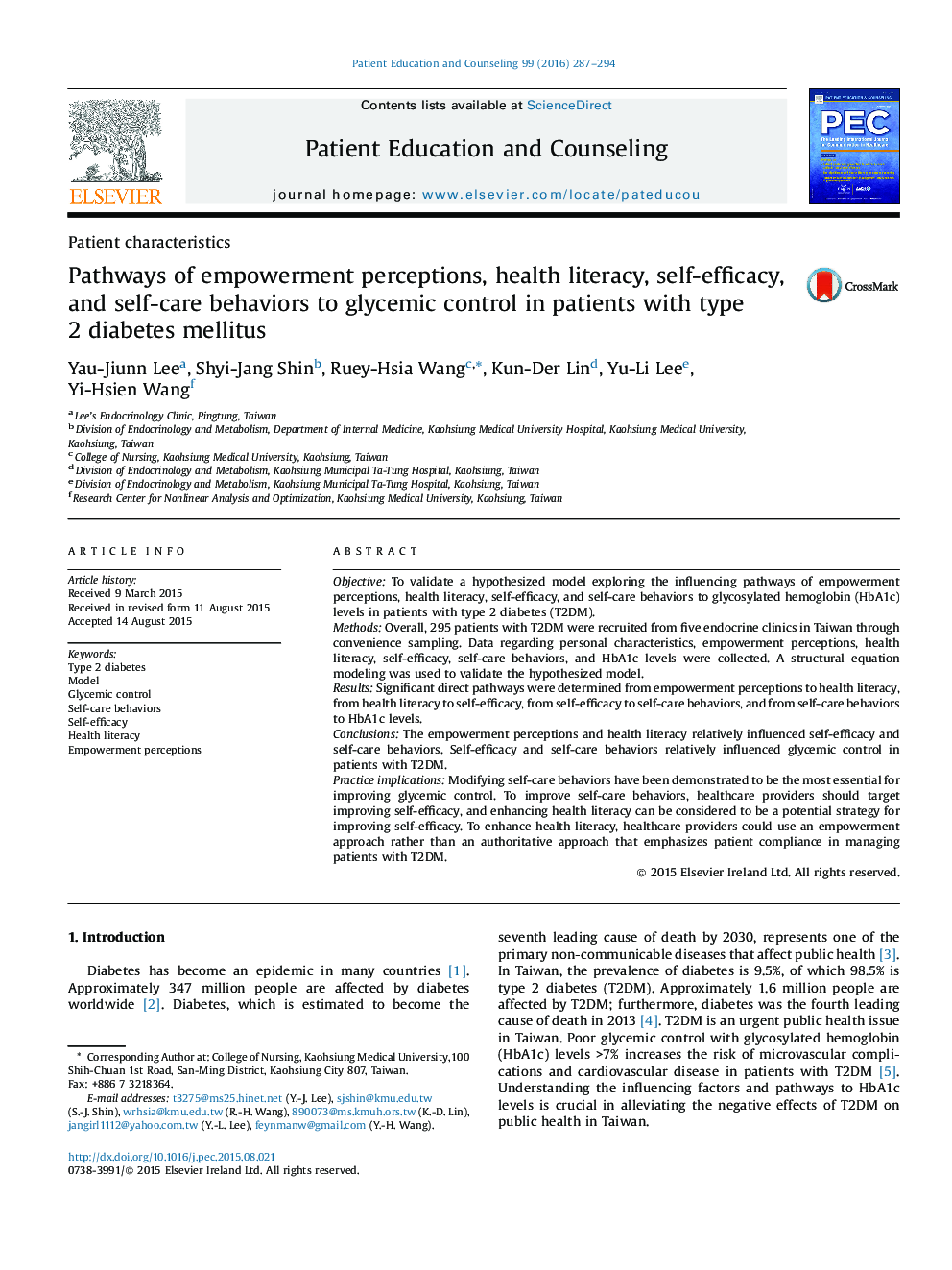| Article ID | Journal | Published Year | Pages | File Type |
|---|---|---|---|---|
| 3816140 | Patient Education and Counseling | 2016 | 8 Pages |
•Health literacy indirectly affected self-care behaviors through the mediation of self-efficacy.•Enhancing health literacy can be a potential strategy for improving self-efficacy.•Empowerment approach can be a potential strategy for improving health literacy.
ObjectiveTo validate a hypothesized model exploring the influencing pathways of empowerment perceptions, health literacy, self-efficacy, and self-care behaviors to glycosylated hemoglobin (HbA1c) levels in patients with type 2 diabetes (T2DM).MethodsOverall, 295 patients with T2DM were recruited from five endocrine clinics in Taiwan through convenience sampling. Data regarding personal characteristics, empowerment perceptions, health literacy, self-efficacy, self-care behaviors, and HbA1c levels were collected. A structural equation modeling was used to validate the hypothesized model.ResultsSignificant direct pathways were determined from empowerment perceptions to health literacy, from health literacy to self-efficacy, from self-efficacy to self-care behaviors, and from self-care behaviors to HbA1c levels.ConclusionsThe empowerment perceptions and health literacy relatively influenced self-efficacy and self-care behaviors. Self-efficacy and self-care behaviors relatively influenced glycemic control in patients with T2DM.Practice implicationsModifying self-care behaviors have been demonstrated to be the most essential for improving glycemic control. To improve self-care behaviors, healthcare providers should target improving self-efficacy, and enhancing health literacy can be considered to be a potential strategy for improving self-efficacy. To enhance health literacy, healthcare providers could use an empowerment approach rather than an authoritative approach that emphasizes patient compliance in managing patients with T2DM.
